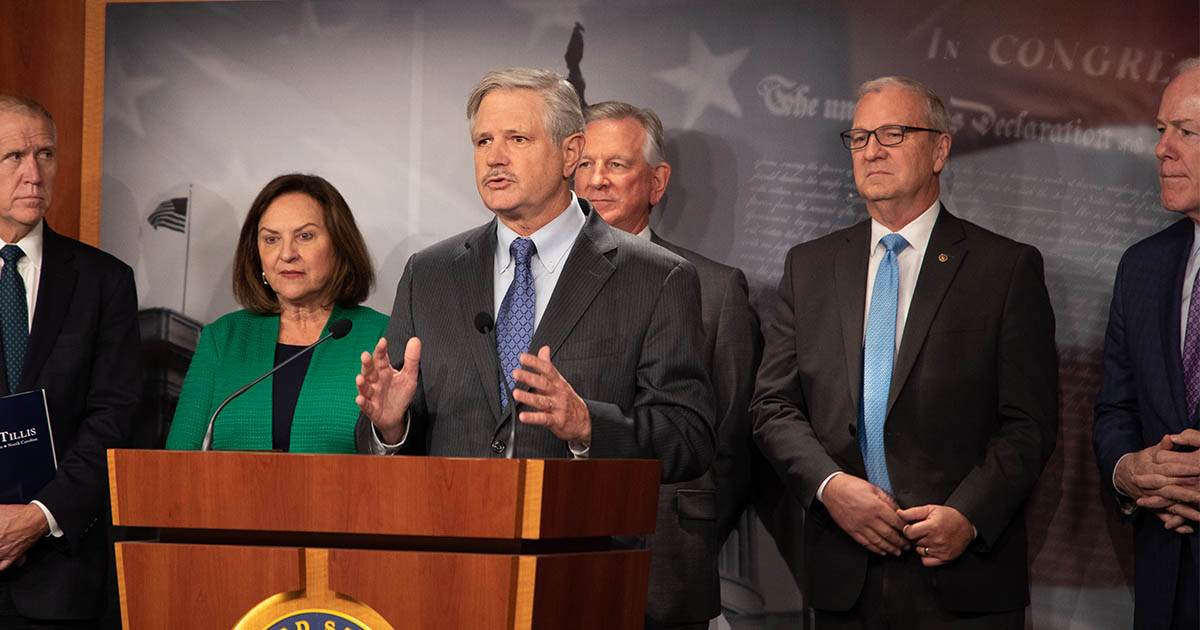Source: United States Senator for North Dakota John Hoeven
WASHINGTON – At a press conference with his Senate Republican colleagues today, Senator John Hoeven pressed for the U.S. Senate to bring up and promptly pass the National Defense Authorization Act (NDAA). In particular, the senator stressed the growing threats from the nation’s adversaries, which are working to advance their nuclear capabilities, and outlined the need to keep America’s nuclear modernization efforts on schedule. With Minot Air Force Base home to the B-52 bombers and the intercontinental ballistic missiles (ICBMs), the senator outlined the importance of a strong nuclear triad as the foundation of our defense.
“Our men and women in uniform defend us and our nation every day, and they have earned our support,” said Hoeven. “That’s why we need to bring the NDAA up for consideration by the Senate as well as preserve the parity between defense and non-defense discretionary spending in our annual appropriations legislation. This is how we support servicemembers and show strength to our adversaries, like Russia, China and North Korea. It is critical that we maintain our technological advantage, including by modernizing our nuclear triad. That is the bedrock supporting our conventional forces, and we are working to make these investments to ensure our servicemembers have the tools they need to get the job done for the American people.”
As a member of the Senate Defense Appropriations Committee, Hoeven is working to advance the following priorities, both in the NDAA and annual appropriations bills:
- A 2.7 percent pay increase for servicemembers and the Department of Defense civilian workforce.
- Authorizing and funding the full slate of nuclear modernization efforts, including:
- Upgrades to the B-52, including the new engine program.
- The new Long Range Stand Off (LRSO) missile to replace the Air Launched Cruise Missile (ALCM) carried on the B-52.
- The new Ground-Based Strategic Deterrent (GBSD), which will replace the Minuteman III ICBM.
- Warhead life extension programs at the National Nuclear Security Administration.
- Countering aggressive Chinese behavior by increasing readiness and presence in the Indo-Pacific.
- Researching and developing advanced hypersonic, intelligence and missile defense technologies.
-###-
